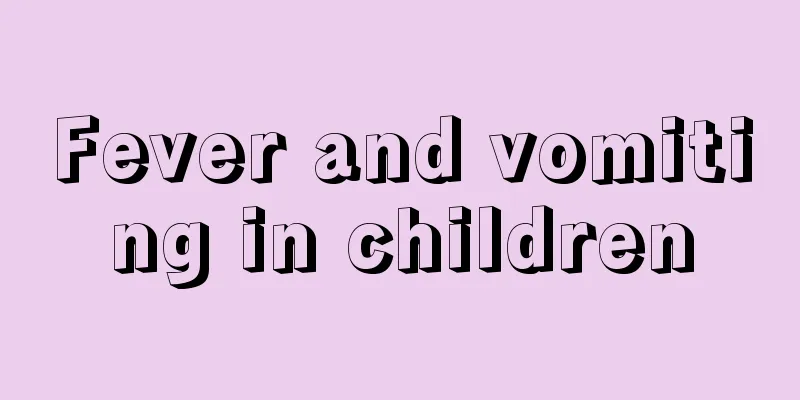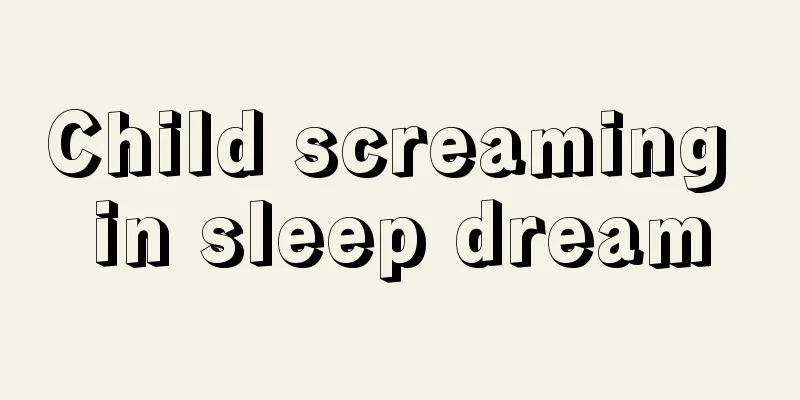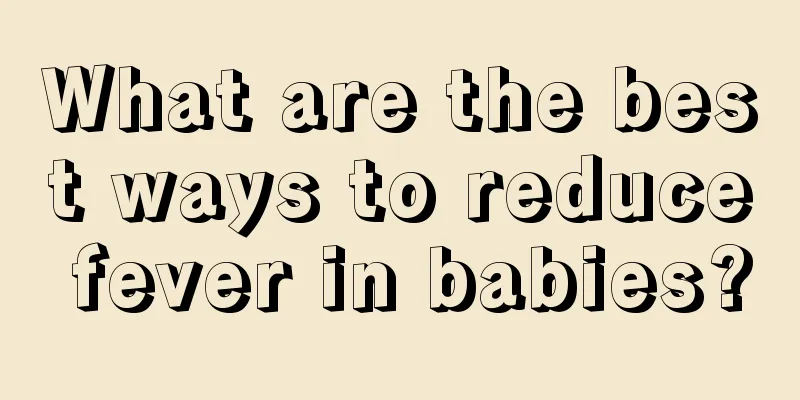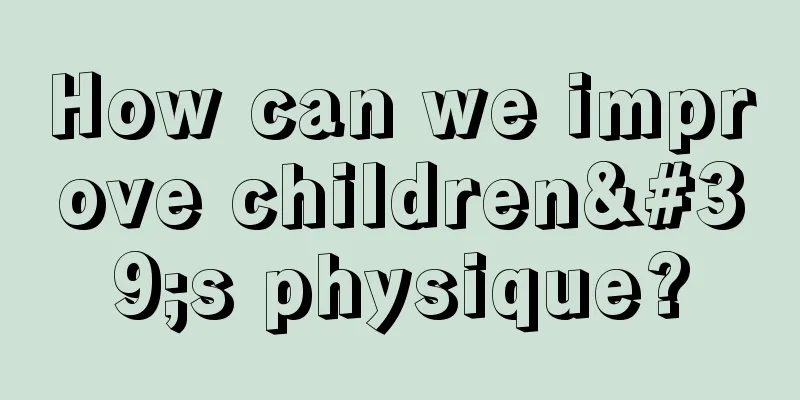Fever and vomiting in children

|
In the process of growing up, babies will inevitably have various problems. When parents take care of their babies, if they know some common sense in this regard, they will not be in a hurry or don’t know what to do when the baby is sick. When children have fever and vomiting, this situation is the most common. In general, what causes fever and vomiting? What causes fever and vomiting in children? 1. Gastrointestinal cold. When children's respiratory tract is infected by a virus, they will experience nausea and vomiting, and in severe cases, they will be accompanied by diarrhea, abdominal pain, etc. 2. Throat irritation. After respiratory tract infection, the throat is infected, with redness, swelling, secretions, and coughing. If vomiting occurs after coughing, it should be considered to be caused by irritation of the throat. 3. Fever causes intestinal dysfunction. After fever, gastrointestinal motility slows down, the effect of digestive enzymes decreases, the baby suffers from indigestion, abdominal bloating, and is prone to vomiting. Nursing methods for children with fever and vomiting 1. Replenish water. If you feel chilly and shivering, you can add a little more clothes. If not, reduce the amount of clothes and quilts to let the heat evaporate naturally. Fever and vomiting can easily lead to dehydration. You can provide water in small amounts and multiple times depending on the baby's condition. 2. Bath with warm water. Wipe the whole body with water slightly higher than body temperature or soak it or use an ice pillow, but do not wipe it with alcohol, because it is more irritating and causes shivering, blood vessel constriction, and the body temperature will rise. 3. Eat a light diet. When vomiting is severe, do not rush to give too much food. It is best to feed water first. After the vomiting improves, give light, easily digestible liquid food, and then transition to a normal diet. 3. When the abdomen is bloated, the mother needs to help the baby exercise appropriately, change the baby's sleeping position, or hold him up and pat his back to help expel gas. 4. Take medication as directed by your doctor. Antipyretic drugs can be given according to the doctor's instructions. Do not shorten the medication time or increase the dosage without authorization just because the fever has not subsided. 5. Seek medical attention if the condition is serious. If you experience cramps, unconsciousness, severe vomiting, diarrhea, difficulty breathing, abdominal tenderness and hardness, headache, stiff neck, etc., you may have other complications and must seek medical attention immediately. Understand the reasons for your baby's vomiting and fever, and provide good care for him to avoid worsening the condition. Mothers should try their best to relieve their baby's vomiting and help the baby reduce fever as soon as possible. |
<<: What medicine should children take for viral fever
>>: What to do if a child has inflammation and fever
Recommend
Treatment of hemolytic jaundice
Hemolytic jaundice is a disease with a relatively...
Two and a half year old baby cries all the time
Every change in the baby after birth is watched b...
Black streaks in baby's stool
We all know that babies cannot eat many foods whe...
What happens if precocious puberty is not treated?
Most people may be familiar with the term precoci...
Height and weight of a one and a half year old child
When a child reaches one year old, his body will ...
What should we do if primary school students have poor memory?
Every child is the focus of his parents. If somet...
What causes bad breath in a three-year-old child?
Bad breath is still very common. People nowadays ...
Five month old baby pillow
Babies develop very quickly, and each stage of de...
What should I do if my child has tooth worms?
Many children have tooth decay due to better livi...
Why is the newborn's voice hoarse when crying?
The first thing a newborn baby does after birth i...
Can babies watch TV? Parents must pay attention!
When children reach a certain age, they will star...
What causes facial twitching in children?
The facial muscle system is very developed. It co...
Oral liquid to increase children's immunity
Children are in the early stages of development a...
What is the reason why the baby does not eat the nipple?
If the baby does not eat the nipple, it will be d...
How often do newborns poop?
Everyone hopes that their baby can grow up health...









